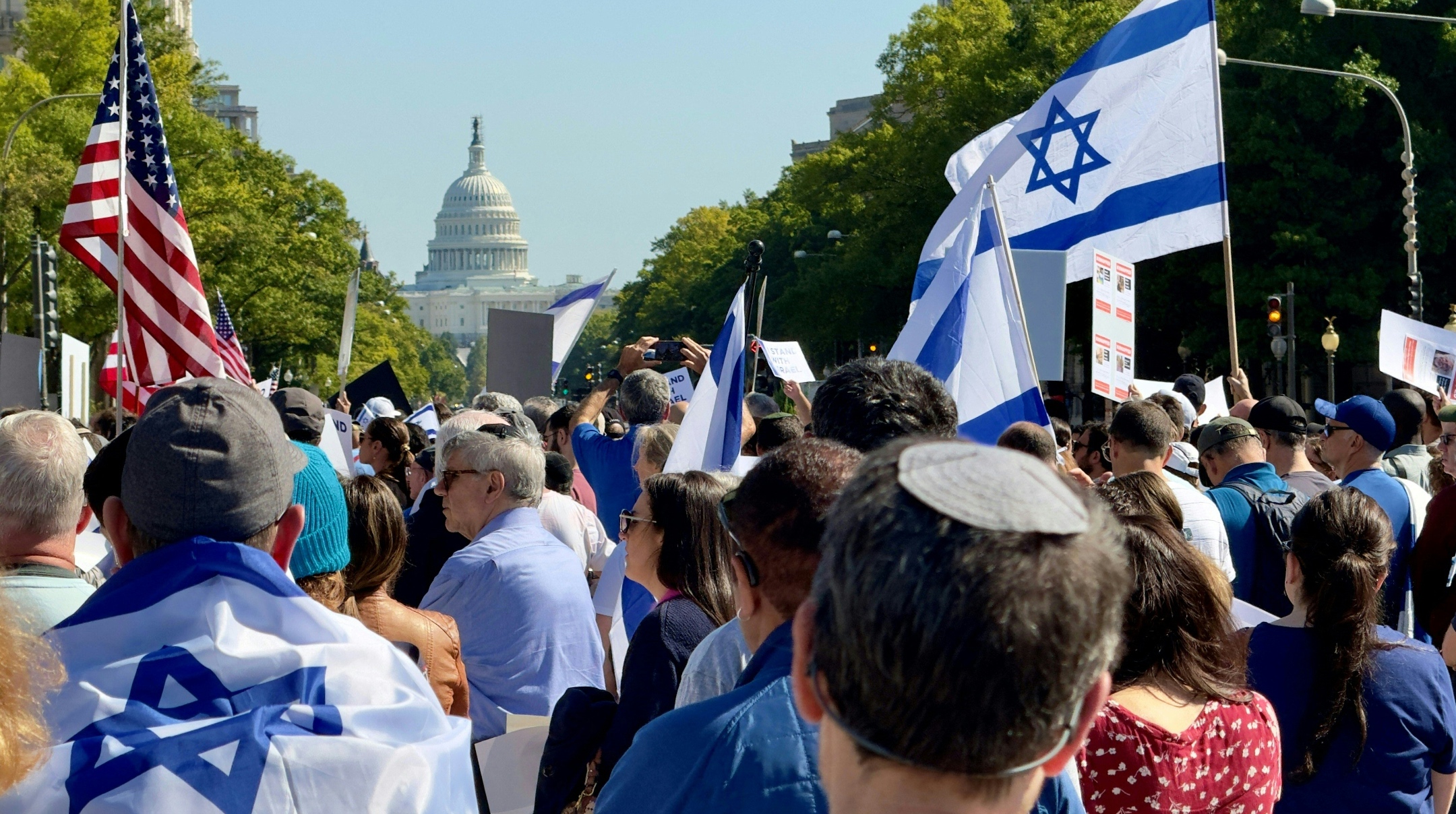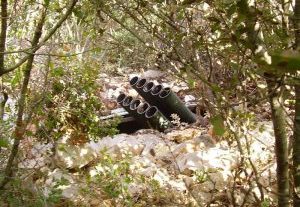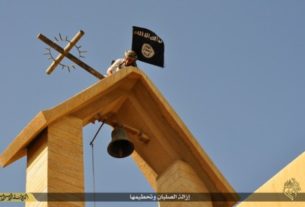((JEWISH REVIEW)) — On Monday morning, Margie Maidman boarded a caravan of 10 buses from Boston to Washington, D.C., headed to a massive demonstration in support of Israel and against antisemitism.
The journey is eight hours each way, and most of the people on her bus, like her, are in their 60s and 70s. It isn’t the first time she’s gone to the National Mall to attend a mass rally. In 1987, she was one of more than 200,000 people to descend on Washington for another cause trumpeted by a wide range of Jewish activists: advocacy for Jews in the Soviet Union.
“The last time I did something like this was in the late 1980s,” Maidman, whose transport is organized by her local Jewish federation, told the Jewish Telegraphic Agency. “Aside from maybe women’s rights in Boston or something, I have not really been part of something on this scale.”
Tuesday’s march, organized by a big tent of pro-Israel and Jewish groups — including the Jewish Federations of North America and the Conference of Presidents of Major American Jewish Organizations — is expected to draw crowds in the tens of thousands. It’s attracting attendees who have long been active in local Jewish groups as well as those who aren’t familiar with Jewish organizational life but feel called to trumpet the rally’s message.
Buses and flights are being organized by local Jewish federations, schools, synagogues and Jewish community centers. Other Jewish and Israeli expatriate groups are bringing delegations of their own. Still others are driving, flying or riding to D.C. on their own. Organizers asked for a permit for 60,000 people to gather, though Jewish leaders hope for more than that to come. A pro-Israel rally in 2002, at the height of the Second Intifada — a Palestinian uprising that included a spree of terrorist attacks and clashes with Israeli police — brought more than 100,000 people to the capital.
“I have to do this, because I have to be there for the Jewish people,” Danielle Werchowsky, a resident of Arlington, Virginia, told (JEWISH REVIEW). “I feel very strongly about that, that we have to show solidarity because we’re getting so many of the messages from the pro-Palestinian big marches. And I don’t want the world to think that those voices are the only ones that count.”
Werchowsky, the mother of a college student, is one of thousands of American Jews who has become increasingly active in pro-Israel advocacy and efforts to fight antisemitism since Hamas’ Oct. 7 attack on Israel. She is a member of multiple online activist groups, including Mothers Against College Antisemitism, the Facebook group that began following the attack that now has nearly 50,000 members. And she started her own local group, Arlington Parents Against Antisemitism.
As civilian casualties have mounted in Israel’s war against Hamas in the Gaza Strip, mass demonstrations across the world have condemned Israel and called for a ceasefire. In response, attendees told (JEWISH REVIEW) they felt an imperative to show up and make a large showing of their own — changing their work schedules, overcoming their fears of being in large crowds and in some cases deciding to bring their children with them to Washington.
“I’m kind of uncomfortable being in large crowds of Jews. I am,” Werchowsky said. “I’m going against my comfort zone by going, honestly, but I’m doing it. If I don’t do it now, why should I expect — you know that old saying: if not me, who?”
Tomer Shani, an Israeli lawyer who has lived in New York for more than four years, is bringing his sons Jonathan and Ethan to the march. They will be traveling on a bus chartered by UnXeptable, an Israeli expatriate group that previously protested the Israeli government’s judicial overhaul but which pivoted after Oct. 7 to organizing relief efforts for Israel.
“We’ve been fighting for the most important thing, which was our democracy, and now we’re fighting for our very existence,” Shani said.
“I think desperate times call for desperate [measures] and traveling to D.C. seems to be not that desperate,” he added. “It’s the little we can do from here to support our people back in Israel and actually the whole western civilization, as far as I’m concerned, in my humble opinion.”
Maidman said that a highlight of the eight-hour bus ride was seeing familiar faces from the Boston area. Like other attendees, she’s not only hoping to make a political statement. During what can feel like an isolating moment, she’s also excited to rally among tens of thousands of other American Jews.
“I even cheer up a little with the idea of just being with so many Jews who care so much about Israel,” Maidman said. “I think the purpose of this march is not simply to make a statement to support Israel, but to support Jews in this country and to let people know: we are here and we matter.”




